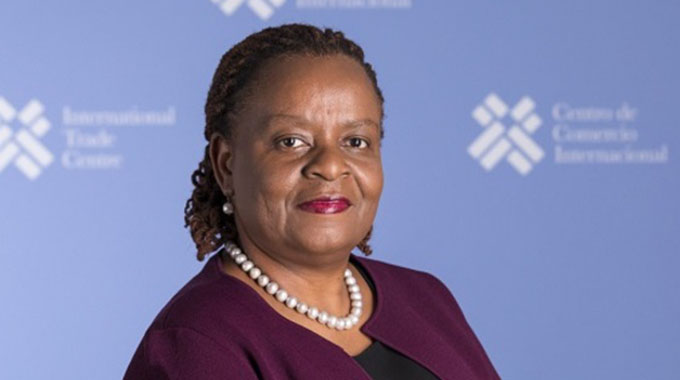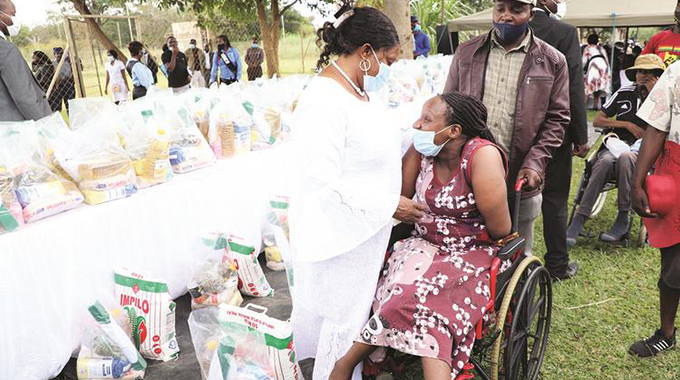Women challenged to grab AfCFTA opportunities

Business Reporter
The International Trade Centre (ITC) has implored women entrepreneurs in Southern Africa to expand their business opportunities, taking advantage of the African Continental Free Trade Area (AfCFTA), a Harare trade forum heard this week.
Organised in collaboration with the Organisation of Women in International Trade (OWIT) in Zimbabwe, the high-level trade forum is part of ITC’s One Trade Africa programme — AfCFTA Dialogue Forums.
Themed looking at “Trade Beyond Covid-19: Demystifying the AfCFTA for Zimbabwe/Southern Africa women-led MSMEs”, the discussions, among other issues explored business opportunities the US$3,4 trillion AfCFTA market can offer.
In 2015, the Africa Union heads of state paved way for the AfCFTA through the adoption of Vision 2063: The Africa We Want.
January 1, 2021 marked the date when the AfCFTA became operational. Fifty-four countries have signed the agreement and 34 have ratified and deposited instruments of ratification with the AU Commission.
The AfCFTA will have a market of about 1,3 billion consumers with GDP of US$3,4 trillion.
Given the current Covid-19 situation, ITC highlighted the rise of existing gender inequalities, affecting women’s access to resources and equitable economic opportunities.
“It is a well-known fact that women’s empowerment creates ripple effects that boost growth and make countries more competitive internationally and also improve other complementary factors, such as health and education,” ITC deputy executive director Ms Dorothy Tembo said.
“Despite these evident gains, women entrepreneurs and women-led business face greater challenges, such as limited financial literacy, access to finance and business networks, and even constraints due to social norms.”
Deputy Minister of Foreign Affairs and International Trade David Musabayana, underscored Government’s recognition to prioritise women’s economic empowerment in achieving the country’s economic growth.
“For women traders and entrepreneurs, including micro-entrepreneurs to benefit from expanded trade under the AfCFTA, Government will scale up existing trade-related technical assistance for women and youth-owned SMEs to help them improve their capacity to trade,” said Mr Musabayana.
ZimTrade chief executive Mr Allan Majuru, believes the agreement opens possibilities for the continent.
“There are vast opportunities in African markets,” said Mr Majuru. “We have no doubt that with the right support Zimbabwean companies will perform well across all markets in the continent.
“Our engagement with ITC and other stakeholders will discuss intra-Africa trade opportunities as well as find solutions to challenges faced by Zimbabwean companies.”
Ending the discussion, private-sector representatives called on policymakers in the region to accelerate digital transformation programmes, such as e-commerce to align national and regional trade strategies.
Other participants included the Common Market for Eastern and Southern Africa (COMESA) Business Council, the Senior Advisor to the AfCFTA Secretary-General, the head of delegation for the European Union to Zimbabwe, the Minister of Women Affairs and the Deputy Minister of Foreign Affairs and International Trade in Zimbabwe.
The forum also included mini-workshops on key trade topics such as exporting within the AfCFTA and increasing intra-Africa transactions through e-commerce.
Southern Africa and Zimbabwean exporters, especially women and young small businesses owners, were encouraged to tap into the opportunities available in other African markets as well as improve their competitive edge.
The International Trade Centre is the joint agency of the World Trade Organisation and the United Nations.
ITC assists small and medium-sized enterprises in developing and transition economies to become more competitive in global markets, thereby contributing to sustainable economic development within the frameworks of the Aid-for-Trade agenda and the United Nations’ Sustainable Development Goals.








Comments